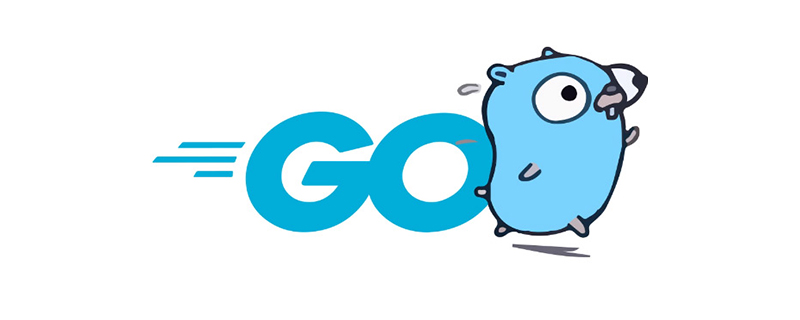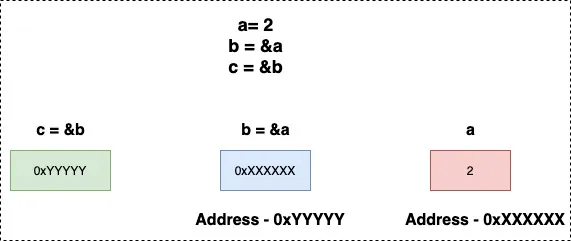With the popularity of concurrent programming, more and more programming languages have begun to provide native concurrency support. Among these supports, there is a runtime scheduling mechanism that is widely used - coroutine scheduling. This article will discuss the coroutine scheduling mechanism in Go language.
Go language is a fast, statically typed programming language developed by Google. It has strong concurrency support and can easily create high-performance, reliable programs. Coroutines in the Go language, or Goroutines, are a very lightweight concurrency mechanism that can start thousands of coroutines.
Before discussing the coroutine scheduling mechanism in Go language, let’s first understand the coroutine. In computers, a coroutine is a lightweight thread that can be executed concurrently in the same address space. The coroutine has its own registers and stack. Compared to threads, coroutines switch much faster and take up much less memory. In the Go language, the implementation of coroutines is very lightweight, even more lightweight than the implementation of threads.
Coroutine in Go language is a special function defined by Go syntax. When executing a function, if you add the keyword Go in front of the function, the function can be packaged into a coroutine. Put it in other coroutines to execute at the same time.
In the Go language, each coroutine has a corresponding coroutine state and context. Coroutines are scheduled across multiple operating system threads as needed. When a coroutine encounters some IO operations or long-term calculation operations, the Go runtime will suspend it and then allocate the processor to other coroutines for execution.
The coroutine scheduling mechanism in the Go language is based on the M:N model. M represents the thread of the operating system and N represents the coroutine. In fact, the Go runtime maintains a number of operating system threads (M) that handle the execution of coroutines. Correspondingly, the Go runtime also maintains many coroutines (N), and uses these coroutines to complete tasks that require concurrent execution.
The main task of the Go language scheduler is to assign coroutines to M, and then assign M to one or more available processors. The number of processors is determined by the value of the GOMAXPROCS environment variable. When a processor has a coroutine that needs to be processed, it will be executed. When the coroutine is completed, the processor will continue to remove a coroutine from the queue and execute it. If a coroutine is executed but there are no new tasks available for execution, the coroutine will be put back into the coroutine pool to wait for the next allocation.
In addition, the coroutine scheduler in the Go language also has adaptive features. For example, under low load conditions, the scheduler can assign multiple coroutines to the same operating system thread to save system resources. Under high load conditions, the scheduler can create more operating system threads as needed and assign coroutines to these threads to increase processing speed.
In general, the coroutine scheduling mechanism in the Go language is a very efficient and flexible concurrency mechanism. It can easily create a large number of coroutines and execute them on multiple threads to meet the needs of high-concurrency applications. At the same time, the Go language scheduler can also adaptively adjust resource usage to improve system performance and stability.
The above is the detailed content of Runtime scheduling mechanism in Go language. For more information, please follow other related articles on the PHP Chinese website!
 深入探讨Golang变量的存储位置和机制Feb 28, 2024 pm 09:45 PM
深入探讨Golang变量的存储位置和机制Feb 28, 2024 pm 09:45 PM标题:深入探讨Golang变量的存储位置和机制随着Go语言(Golang)在云计算、大数据和人工智能领域的应用逐渐增多,深入了解Golang变量的存储位置和机制变得尤为重要。在本文中,我们将详细探讨Golang中变量的内存分配、存储位置以及相关的机制。通过具体代码示例,帮助读者更好地理解Golang变量在内存中是如何存储和管理的。1.Golang变量的内存
 什么是golangNov 22, 2022 am 10:33 AM
什么是golangNov 22, 2022 am 10:33 AMgolang是一种静态强类型、编译型、并发型,并具有垃圾回收功能的编程语言;它可以在不损失应用程序性能的情况下极大的降低代码的复杂性,还可以发挥多核处理器同步多工的优点,并可解决面向对象程序设计的麻烦,并帮助程序设计师处理琐碎但重要的内存管理问题。
 深入了解CSS布局重新计算和渲染的机制Jan 26, 2024 am 09:11 AM
深入了解CSS布局重新计算和渲染的机制Jan 26, 2024 am 09:11 AMCSS回流(reflow)和重绘(repaint)是网页性能优化中非常重要的概念。在开发网页时,了解这两个概念的工作原理,可以帮助我们提高网页的响应速度和用户体验。本文将深入探讨CSS回流和重绘的机制,并提供具体的代码示例。一、CSS回流(reflow)是什么?当DOM结构中的元素发生可视性、尺寸或位置改变时,浏览器需要重新计算并应用CSS样式,然后重新布局
 go语言中goto怎么用Nov 23, 2022 pm 06:40 PM
go语言中goto怎么用Nov 23, 2022 pm 06:40 PM在go语言中,goto语句用于无条件跳转,可以无条件地转移到程序中指定的行;它通过标签进行代码间的无条件跳转。goto后接一个标签,这个标签的意义是告诉Go程序下一步要执行哪行的代码,语法“goto 标签;... ...标签: 表达式;”。goto打破原有代码执行顺序,直接跳转到指定行执行代码;goto语句通常与条件语句配合使用,可用来实现条件转移、构成循环、跳出循环体等功能。
 go语言有gc吗Nov 24, 2022 pm 08:21 PM
go语言有gc吗Nov 24, 2022 pm 08:21 PMgo语言有gc。GC是指垃圾回收,是一种自动内存管理的机制;go语言支持GC,Go语言中对象内存空间的回收是通过GC机制来完成的。对于Go语言而言,Go语言的GC使用的是无分代(对象没有代际之分)、不整理(回收过程中不对对象进行移动与整理)、并发(与用户代码并发执行)的三色标记清扫算法。


Hot AI Tools

Undresser.AI Undress
AI-powered app for creating realistic nude photos

AI Clothes Remover
Online AI tool for removing clothes from photos.

Undress AI Tool
Undress images for free

Clothoff.io
AI clothes remover

AI Hentai Generator
Generate AI Hentai for free.

Hot Article

Hot Tools

Zend Studio 13.0.1
Powerful PHP integrated development environment

Atom editor mac version download
The most popular open source editor

ZendStudio 13.5.1 Mac
Powerful PHP integrated development environment

SublimeText3 Mac version
God-level code editing software (SublimeText3)

Dreamweaver Mac version
Visual web development tools









